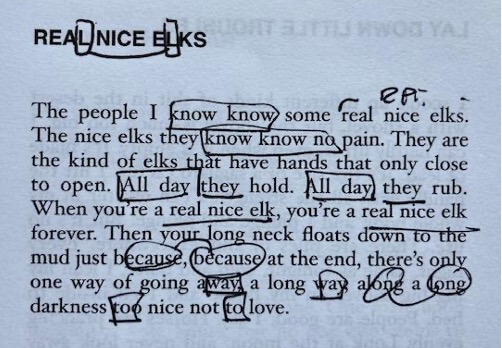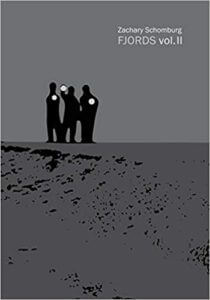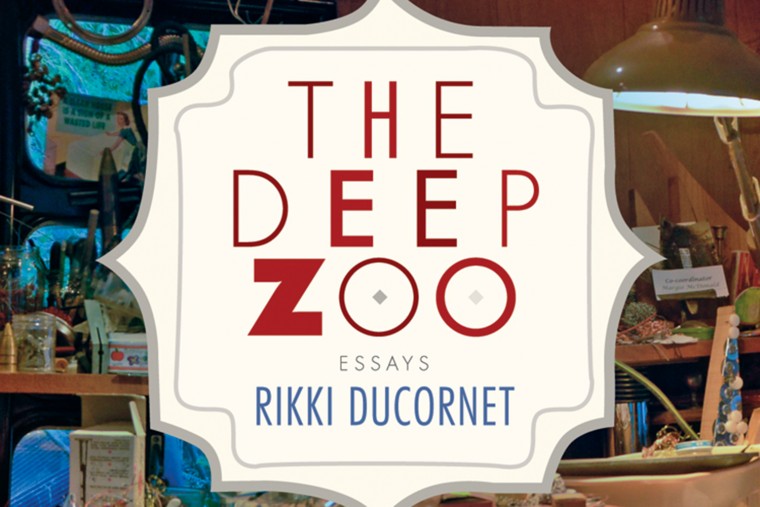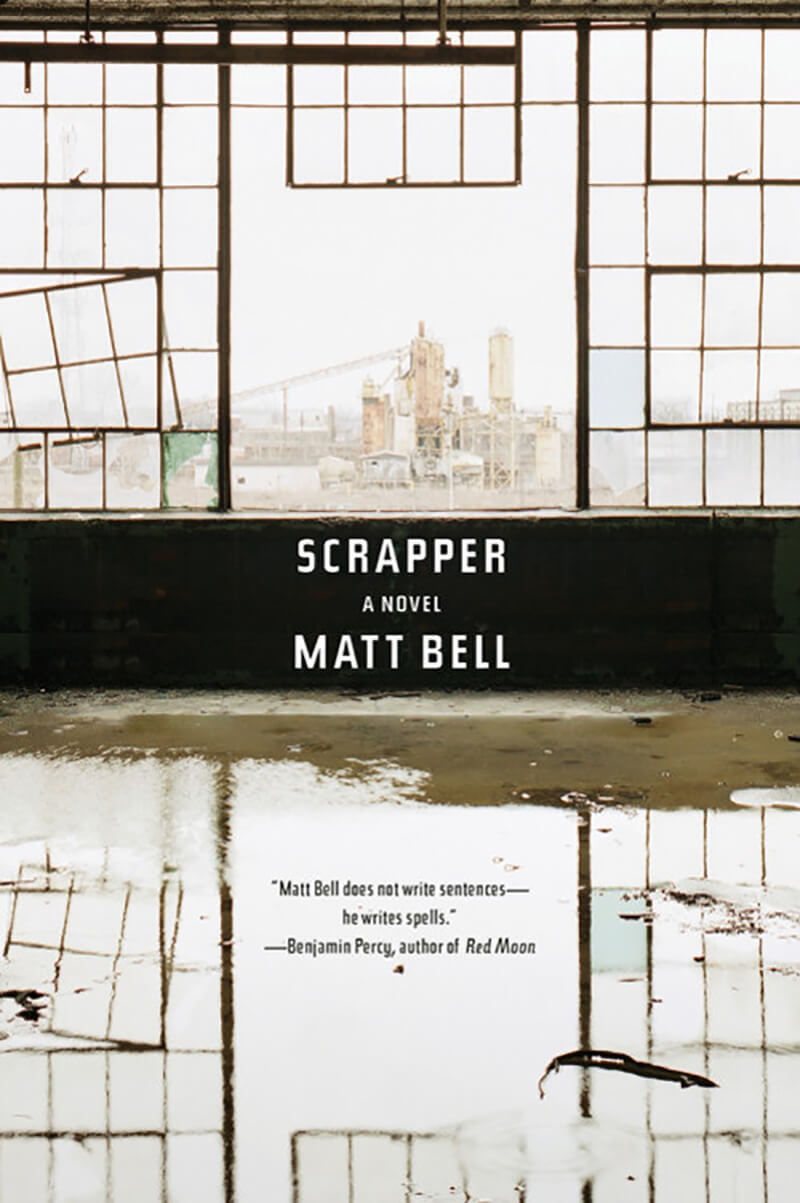Death and Jokes and Horse Cows and Ice Cream Cones:
Fjords vol. 2 by Zachary Schomburg
Review by Isaac George Lauritsen
We Begin With Death
Poets like to write about death. That’s about as honest as death itself. Maybe we do it for reasons similar to those Zachary Schomburg outlines in his essay, “Poetry as Violence,” where he writes of death: “it is the absolute truth… something we all have in common, a common and uniting plight.” In his book series, Fjords, both volumes begin with poems titled “What Would Kill Me” in which the speaker considers death’s arrival in a number of possibilities: “tiring in quicksand… the hot breath of a bear… a pair of scissors on the moon” (1). Those of us aware of death might have meddled with our own versions of the fantasy, yet the implied question that emerges from “What Will Kill Me” of the second volume, which ends with the speaker “noticing my death notice me” (1), is a fascinating one: what does it mean for death to notice us?
“As Bright As Love For Just A Flash”
Schomburg, also a visual artist, collages with emotions. If a poem of Fjords vol. 2 makes me feel one way, I’m sure to know a shift will occur soon enough. Are these poems about death? Yes, but they’re also about grief:
“I have nothing to lose and something to prove. Two identical feelings. One is how long grief is gone. One is when will it comeback.” (20)
and love:
“One thing about horse cows is they have big hearts. They love you, and they will carry that love for you into a boiling river.” (22)
and love that guilts:
“I would only hear my heart, and it would pound out a beautiful song that goes you know not what you’ve done you know not what you’ve done.” (52)
and humor:
“We were on our way to the funeral. I cried so hard, I became a horse.” (30)
and humor but louder:
“That’s something I learned when I was just a little girl. I killed everyone, and I killed everything. Love is a perfect measurement.” (58)
at times in oddly common settings:
“I was reading a story by Cortazar called “Continuity of Parks” while sitting on a bench in the park near a few wild parrots pecking at a dropped ice cream cone” (9)
“Joy is a surprise,” says the speaker of “Hundreds of Years of Death,” but so are all our experiences, memories, feelings, Fjords vol. 2 says. We can move from joy to grieving in less than a moment, in the small space of a poem. And in the smaller space of a sentence, we might not know how to feel:
“The thing about killing is, like everything else, it feels as bright as love for just a flash” (38).
Or we feel all of it at once.
A Cliff Is Jagged Air
It’s one thing to be aware of the dream-scenes of these poems, as Schomburg’s a poet whose work often deals with the small-scale surreal. It’s another thing to feel these dreams textured by patterned and skillful phrases as wonderfully odd as these:

The title threaded together by the L-sounds, the repeated words and phrases, anaphora and homonyms – we learn that the textures of language, in addition to image or narrative, can be the course through which we walk through these dreams.
In “The Cliff Floats Low,” two nuns on a cliff look at a cloud over another cliff, which looks like a cliff. As I read, I become less concerned with narrative and am filled with anticipation that another one of the twelve “cliffs” will jut into my mind’s hearing.
Hear it? The jaggedness of the hard “C” putting rocks below your feet? The airiness of the “iff” giving wind to your body?
“A Monotonous Existence Enclosed In An Eye”
As “What Will Kill Me” tells us, this quote comes from “page 63 of my copy of Woman in the Dunes by Kobo Abe” (1). Though Abe and Schomburg share a similar surrealist sensibility, I find Schomburg’s use of Abe’s quote relates more to the innocence, quietness, and tenderness of many poems of this volume. There’s often someone watching, appreciating domestic, “monotonous” moments.
“Plants” begins with directions on how to keep plants warm, which “are colder than you think.” The poem shifts from humor in the question, “have you ever showered with your plant?” to the intimacy of the “light from the shower window pushing through the steam.” Then, the speaker observes “the people living a life” who “go to the zoo,” who “make wishes” (13). In “Invaders Never Wander,” the speaker thinks about the people “going home to eat ice cream, living a whole life in a few different mid-sized homes, having manners, looking at Wife on gravestones” (33).
These are moments that don’t feel explicitly special, yet it’s in noticing them that they become that way. To know someone who you do not know makes wishes, who has lost a person they love, suggests the hugeness of the life they inhabit.
Monotonous moments are more complex than the words we ascribe to them. Take the poem titled “A Monotonous Existence Enclosed in an Eye”: it’s anything but monotonous. It’s manic:
““Fuck, yeah!” I said. I was so far gone. I felt like I could see all of time all at once. I was haunting myself from the future. “Fuck, yeah!” I said again.” (43)
Fuck yeah to a monotonous existence.
We End With Birth
The final poem, “The Life of Someone,” sees the birth of “her,” an elusive figure whose arrival is long-awaited, dies one hundred years after her birth, at which point, “we were all gone of course” (61). That quickness from birth to death in a five-sentence poem reminds us that death is what we’re born with. But what does it mean for death to notice us?
Since his first collection, The Man Suit, many of Schomburg’s books have included indexes. They’re playful. And if they had a voice, they might say something like, “oh, you’re looking for a poem about legs? Or a poem about sitting in a chair? Right this way to page 9 or 23 or 35 or 47 or 60.” They also reveal the book’s fixations. My favorite in the index of Fjords vol. 2 is “Love, explicitly mentioned,” to suggest it exists elsewhere and in moments where the word does not live up to the feeling.
This index makes me think of the wealth of images, experiences, feelings that make up our lives. It reflects us just as we are reflected in the boxes of text that these poems are written in: seemingly simple shapes with a wealth of psychic movement. Our death, when it comes for us, sees our indexes filled with all we’ve done and said and felt.
When I read these poems, I remember that I’m going to die, that I’m going to present my death with what I’ve done and said and felt; what I’ve regretted; who I’ve loved. And for all of it, a thank you, like a bookend, to what would kill me is fitting.
“Inside The Tiger”:
“Together, we will be carried forever, through this death, a hole through which to fail this life straight through. How I would say thank you so sincerely from this mouth would kill us all. Thank you.” (14)

Fjords vol. 2 Zachary Schomburg Black Ocean ISBN: 978-1939568373
About the Author

Isaac George Lauritsen is a poet, playwright, and illustrator. His work can be found, or is forthcoming, in Full Stop, Jabberwock Review, Lost Pilots Lit, mutiny! magazine, The Shore, Sidereal Review, Soundings East, Tilted House Review, on a broadside from Octopus Books, and elsewhere. He served as associate poetry editor for Bayou Magazine. He writes copy for money.



